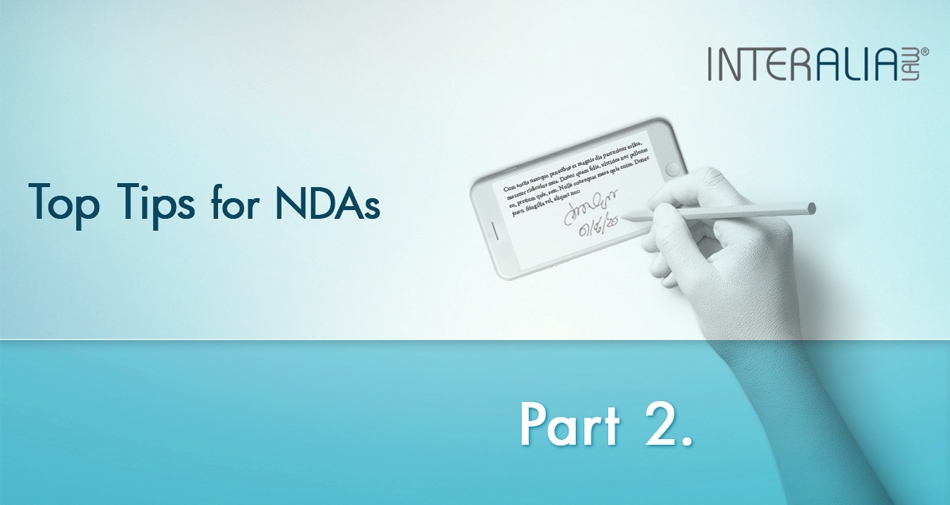
by Vivian Leung
Further to Part 1 of this blog post, here are some additional tips when reviewing NDAs:
- 1. Remedies.
- Okay, this part will sound very legal but the concept is simple. In a typical breach of contract case, the common law remedies are damages, restitution or rescission. These are monetary remedies and unfortunately, none of these are helpful in a breach situation where the Recipient is making your Confidential Information public or using it for inappropriate purposes (See Tip #3 of Part 1). In this situation, the Discloser will want to run to court to get an injunction to stop the Recipient. This calls for an equitable remedy, which is specific performance. Make sure the confidentiality agreement states that in addition to monetary damages, the Discloser is entitled to specific performance or equitable relief.
- 2. Termination of confidentiality obligation.
- Make sure the contract is clear on when the Recipient’s confidentiality obligation ends. It can be two years, five years or even indefinite. It doesn’t really matter as long as (a) it’s appropriate given the type of information that is being disclosed, and (b) it’s clear what happens to the Confidential Information once that obligation terminates. Upon termination, my preference is always to keep that information confidential indefinitely or to destroy that information. Many contracts require the Recipient to return the Discloser’s Confidential Information, although, I’ve never seen it actually happen. Can you imagine the headache if you missed that provision and three years later, the Discloser asked for every copy of it’s Confidential Information back? Again, I’m assuming that there is no one at the Recipient who is policing this so watch for this up front.
- 3. Exceptions to the Rule.
- Of course there are exceptions to the tips listed above. These tips are great for garden variety NDAs with potential vendors and customers. Whether you review these types of confidentiality agreements yourself or use external counsel, it shouldn’t take more than 30 minutes of review. Short and sweet. But if you are involved in a financing or M&A activity, then the NDAs should definitely go to external counsel for a thorough review. Why? Because in these sorts of situations, disclosure is usually one way, involves highly sensitive information (financials, forecasts, disputes, technology roadmaps, source code, sales pipeline) and the consequences can be disastrous if this information gets into the wrong hands. In these cases, external counsel rates are definitely justified.
Each Inter Alia lawyer has worked both in-house and in private practice. We love solving problems for our clients, and this blog gives some insight into how we do this practically and efficiently. If these tips speak to you, or you think we could help you, please contact darlene@interalia-law.com.
